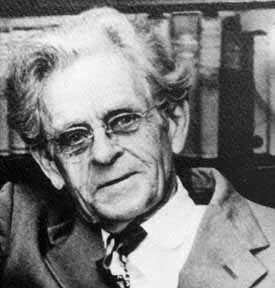
“Black Elk Speaks,” the internationally acclaimed book by John G. Neihardt, is returning to the University of Nebraska Press with a new edition set for publication in early 2014.
From 1961 to 2008, UNP published this classic text of the American West and Native Studies. As of November 2013, UNP will again be publisher of Neihardt’s best-selling work and one of the most important books in the Press’s history.
“For almost 50 years, the University of Nebraska Press was the publishing home of John G. Neihardt and ‘Black Elk Speaks,’” University of Nebraska Press director Donna Shear said in the Oct. 1 news release announcing the book’s return. “I am proud to welcome this book back to Nebraska and into our family, and I am honored to work with the Neihardt Trust.”
The return of Black Elk Speaks to UNP will be the catalyst for a number of specially commissioned Neihardt books, including annotated editions of his most significant work, “Cycle of the West,” as well as “Eagle Voice Remembers,” Chancellor Harvey Perlman said.
“Based on the foundational nature of ‘Black Elk Speaks,’ our Press will continue its proud heritage as one of the leading publishers of works of enduring significance in the fields of Native Studies and the American West,” Perlman said.
Neihardt’s literary significance cannot be overstated, Shear said, and UNL has long been home to Neihardt’s greatest poetry and prose.
“’Black Elk Speaks’ will rejoin its rightful place next to ‘Cycle of the West, Lyric and Dramatic Poems’ and ‘Eagle Voice Remembers,’” she said. “We are excited to work closely with the Neihardt Trust. We believe that together we can advance the field of study surrounding these important works and their meaning to the Great Plains and the nation at large.”
Prem S. Paul, UNL vice chancellor for research and economic development, said the book’s return and UNP’s partnership with the Neihardt Trust “underscores the strong links of the university with John Neihardt, who, after all, was the first Nebraska poet laureate, and whose life work is so deeply rooted in Nebraska and the Great Plains.”
“I am pleased to once again work with the University of Nebraska Press,” said Coralie Hughes, Primary Trustee of the John G. Neihardt Trust and granddaughter of Neihardt. “On behalf of the Trust I thank the University of Nebraska-Lincoln for their enthusiasm for all of my grandfather’s books. The expertise and talent that resides within the Press provides me, and the Trust, with a profound sense of confidence that his complete body of work will be given its proper attention.”
A poet and author, Neihardt (1881–1973) graduated from Nebraska Normal College (now Wayne State College) in 1897. He moved to Bancroft, Neb., four years later. In 1921, the Nebraska Legislature honored Neihardt as the state’s first poet laureate.
In 1930, Neihardt met Lakota holy man Black Elk, who told Neihardt of his life. These conversations would lead to Neihardt writing “Black Elk Speaks,” which was first published in 1932, and would quickly become the country’s most influential book about Native American culture and religion.
Building on this work, Neihardt established himself as one of the nation’s pre-eminent poets, a writer of substantial and influential fiction, and a foremost expert on northern Plains Indian culture and beliefs. In 1948, he accepted a position at the University of Missouri where he taught one of the country’s largest and most popular classes on the American West based on “Cycle of the West.” In 1969, he retired back to Nebraska.
Founded in 1941 and located in Lincoln, the University of Nebraska Press is a nonprofit scholarly and general interest press that publishes 170 new and reprint titles annually under the Nebraska, Bison Books, and Potomac Books imprints, and in partnership the Jewish Publication Society, along with 27 journals. As the largest and most diversified university press between Chicago and California, with 3,000 books in print, it is best known for publishing works in Native studies, history, sports, anthropology and geography, American studies and cultural criticism, and creative works.







